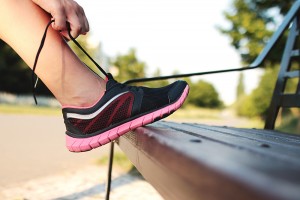What Effects Does Having a Positive Attitude Have on Cancer Patients?
January 12, 2016Tips for Telling Your Loved Ones You Have Cancer
January 12, 2016Healthy Habits to Help Decrease Chances of Cancer
We all want to live long, happy lives, preferably pain-free. Cancer takes far too many lives, and while advanced treatments with successful outcomes are available, a definitive cure has yet to be found. However, there are lifestyle changes and habits you can incorporate today that will help decrease your chances of contracting cancer in the future. Here are some healthy habits everyone should practice to increase your chances of a long, healthy life.
Don’t Smoke
There was a time when the long term effects of smoking were unknown, but that day has long passed. Don’t give lung cancer an increased chance of affecting your life. If you don’t smoke, keep it that way. If you do smoke, find a way to quit now. Lung cancer is one of the leading cancers found in both men and women, and a large percentage of lung cancer patients are smokers.
Keep Your Heart Healthy
The American Heart Association has found that those who live a heart-healthy lifestyle had a 38% lower chance of developing cancer. Now, it’s easy to promote and encourage heart-healthy habits, but it’s another task to actually implement them into your daily routines. Here are some habits that not only help keep your heart healthy and strong, but have numerous other health benefits as well:
 Be Active – Your heart is like any other muscle; in order to retain and grow in strength, it needs to be worked. An active lifestyle, whether you’re running in races or hiking up in the mountains, will help keep your heart strong and healthy. An active lifestyle will also help you maintain your weight goals, and can ward off other diseases like heart disease and diabetes.
Be Active – Your heart is like any other muscle; in order to retain and grow in strength, it needs to be worked. An active lifestyle, whether you’re running in races or hiking up in the mountains, will help keep your heart strong and healthy. An active lifestyle will also help you maintain your weight goals, and can ward off other diseases like heart disease and diabetes.
- Eat Healthy – Whole-grain fiber, lean protein, along with fruits and vegetables can help fuel your heart and keep your cholesterol levels low. Avoid trans fats, added sugars, sodium, and foods high in cholesterol; a diet heavy in these types of foods can lead to other health risks, such as heart disease, diabetes, and cancer.
Protect Your Skin
Skin cancer often doesn’t get the attention it deserves, or it’s quickly dismissed by the public. Nevertheless, too much sun can be extremely damaging to your skin and can inevitably lead to skin cancer. If you spend a lot of time outdoors for work or play, then be sure you’re taking the necessary precautions to protect yourself. When appropriate, wear hats and clothing that offer coverage and protection from the sun. When your skin is exposed to the sun for an extended period of time, then be sure to use an appropriate amount of sunscreen. Don’t skimp on quality sunscreen. Be sure it provides a high SPF rating, and consistently apply when the time comes.
Get Screened
Know your family medical history. There may be some instances in which you’ll want to get screened at an early age, especially if there is a history of cancer in your family. Regardless, stay current on checkups and screenings. Be sure you’re receiving regular physicals from your doctor and be proactive about your health care. Many cancers can be successfully treated when they are discovered in their early stages. If you feel abnormal pain for any reason, get it checked out.
